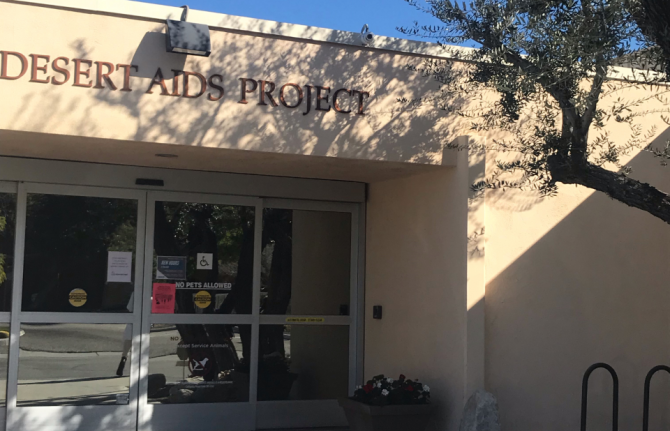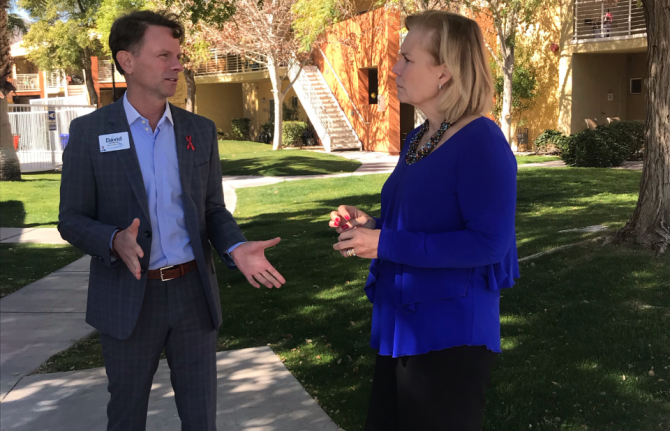


Feature Story
AIDS care in the Californian desert
12 February 2019
12 February 2019 12 February 2019Palm Springs, in the southern Californian desert in the United States of America, is well known for its hot springs, stylish hotels and golf courses. A playground for the rich and famous, celebrities have flocked to the area since the 1920s.
Palm Springs is also home to a sizable community of people living with HIV, notably gay men, many of whom who are over 50 years old and each with their own very specific health and social needs.
The place many turn to for support is the Desert AIDS Project, a primary health-care centre providing specialized health services for people living with and affected by HIV. Set up by a group of community volunteers in 1984, the Desert AIDS Project has been the Coachella Valley’s primary non-profit health and well-being resource for people from the HIV community for the past 35 years.
“My vision is a comprehensive HIV and primary care health centre with integrative services for all people, regardless of their ability to pay. We believe that addressing the basic humanitarian needs builds the foundation of our holistic approach to care,” said David Morris, the Chief Medical Director of the Desert AIDS Project.
Today, more than 400 volunteers work at the project, which currently has around 4000 clients enrolled in its care, half of whom are affected by HIV. An average of 30–40 additional new clients enrol each month. As well as HIV care, staff and volunteers provide dentistry, behavioural health and social services. They also offer free and confidential HIV testing seven days a week at locations across the region.
“Bringing the Desert AIDS Project and UNAIDS—local and global—together allows us to share strategies, experience and results and also shows how innovative and comprehensive HIV programmes and services in the Coachella Valley can serve as models everywhere,” said Bertil Lindblad, former Director of the UNAIDS New York Office and Director of the Regional Support Team for Eastern Europe and Central Asia, now a member of the Desert AIDS Project’s Board of Directors.
The Desert AIDS Project has become well known and well respected for its policy of providing services to all people in Palm Springs, including the most marginalized. It offers many free or low-cost health services and operates an 80-unit affordable housing community for people in need. A long waiting list for housing has recently prompted an expansion effort to add additional units.
“While many are talking about the end of AIDS, the Desert AIDS Project is innovating, collaborating and working every day to get there,” said Marsha Martin, the North American UNAIDS Programme Coordinating Board delegate for 2017 and 2018.
On 8 February, the Deputy Executive Director, Management and Governance, of UNAIDS, Gunilla Carlsson, was invited to visit the Desert AIDS Project to learn first-hand how the centre meets the health-care needs of the HIV community and people at risk of HIV.
“The Desert AIDS Project is an example of how a holistic health-care approach and community action translates into results. It has evolved from being a group of volunteers providing HIV services to be a health provider. Its success shows what can be done when we put our minds to it,” she said.



